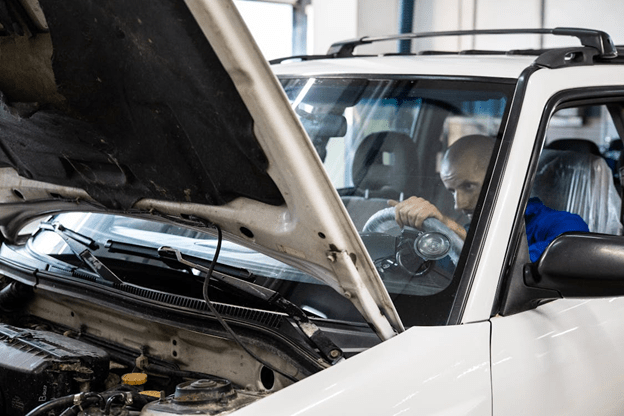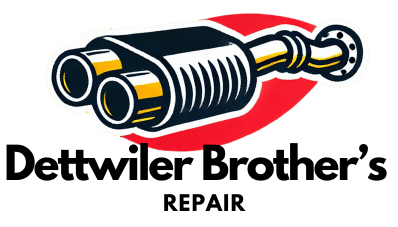
The Engine Rebuild Process: What You Need to Know
When your car’s engine starts knocking, losing power, or guzzling oil, one of the biggest questions you might face is whether it’s time for an engine rebuild. While the idea of rebuilding an engine can sound intimidating, it’s often a smart and cost-effective alternative to replacing your entire vehicle or even the engine itself. But what does the engine rebuild process actually involve—and how do you know when it’s the right choice?
Let’s break it down in a way that’s easy to understand, even if you’re not a gearhead.

What Is an Engine Rebuild?
At its core, an engine rebuild is the process of taking apart your engine, inspecting and cleaning all components, replacing worn-out parts, and reassembling everything so it runs like new—or close to it. Think of it like giving your engine a second life.
Over time, heat, friction, and general wear can break down the moving parts inside your engine. Rebuilding restores the engine’s internal health, addressing the damage without the need to replace the entire engine.
Signs Your Engine Might Need a Rebuild
You don’t have to wait until your car completely breaks down to consider a rebuild. Here are some common warning signs:
- Excessive oil consumption: If you’re constantly topping off your oil, it could mean the piston rings or valve guides are worn.
- Blue or white smoke from the exhaust: This usually points to oil or coolant entering the combustion chamber.
- Knocking or tapping noises: Internal engine components like bearings or lifters could be failing.
- Loss of power: If your car feels sluggish and underpowered, compression loss in the engine might be the culprit.
- Check engine light: Persistent warning lights often accompany other engine performance issues.
These symptoms can also point to less severe problems, but when they happen together—or get worse over time—it’s worth getting a thorough inspection.
The Rebuild Process Step-by-Step
Rebuilding an engine isn’t just a repair—it’s a restoration process. Here’s a look at what typically happens:
1. Initial Diagnosis and Inspection
Before anything gets taken apart, your mechanic will perform a series of diagnostics to confirm that a rebuild is necessary. This includes:
- Compression tests
- Leak-down tests
- Visual inspections
- Oil analysis
Once it’s clear that a rebuild is the right path forward, the engine is removed from the vehicle.

2. Engine Disassembly
The engine is completely disassembled and stripped down to its basic components. This means separating the cylinder head, pistons, crankshaft, camshaft, valves, and bearings.
Each part is examined for wear and damage. The goal is to identify what can be reused, what can be machined, and what must be replaced.
3. Cleaning and Machining
Before any rebuilding begins, all engine parts are thoroughly cleaned. Dirt, oil sludge, and carbon deposits are removed using high-powered cleaners or ultrasonic baths.
Next, the machinist steps in. Common machining tasks include:
- Boring cylinders to fit oversized pistons
- Resurfacing heads to ensure a smooth, flat surface
- Polishing or grinding crankshafts
- Valve grinding or seating
Machining ensures each surface and measurement is up to manufacturer specifications, which is critical for reliable performance.
4. Replacing Worn Components
At this stage, any damaged or worn parts are replaced. This usually includes:
- Pistons and piston rings
- Bearings
- Gaskets and seals
- Timing components
- Oil pump
- Valves or valve guides
New components bring fresh life to the engine and are matched precisely to the machined surfaces.
5. Reassembly
With all parts cleaned, machined, and replaced as needed, the engine is reassembled with expert precision.
Every bolt is torqued to specification. Every clearance and tolerance is checked to ensure the engine will run smoothly and efficiently. This step takes time and great attention to detail, as even small mistakes can lead to major issues down the road.
6. Testing and Reinstallation
Before the engine is put back in the car, it’s tested. Depending on the shop, this could include:
- Pre-lubrication checks
- Pressure testing
- Cold and hot start tests
Once everything checks out, the engine is reinstalled in your vehicle. After installation, additional testing is done to ensure the rebuild was successful and that all systems are functioning correctly.
Rebuild vs. Replace: Which Is Better?
It depends on your vehicle and your budget.
Rebuilding an engine is typically less expensive than buying a new or used replacement engine. It also allows you to retain your original engine block, which can be important for classic cars or vehicles with tight engine compartment fits.
Replacing the engine might be the better option if the engine has extensive damage, such as a cracked block or severe overheating, or if you’re dealing with an older car where parts are hard to find or costly to machine.
Ultimately, your mechanic can help you weigh the pros and cons based on your specific situation.

How Long Does an Engine Rebuild Take?
A rebuild typically takes anywhere from one to three weeks, depending on parts availability, machine shop scheduling, and the extent of the work.
Keep in mind, quality takes time. Rushing the rebuild process can lead to poor results and a shorter engine lifespan.
How Long Does a Rebuilt Engine Last?
A professionally rebuilt engine can last 100,000 miles or more when properly maintained. In fact, some rebuilt engines perform just as well as brand-new ones.
The key is maintenance. Follow oil change schedules, use high-quality fluids, and keep up with regular inspections to get the most life out of your rebuilt engine.
Trust the Pros: Why the Right Shop Matters
Rebuilding an engine is not a DIY project. It requires technical knowledge, specialized tools, and access to a trusted machine shop.
At Dettwiler Brother’s Repair in Shippensburg, PA, we understand the commitment you’re making when you invest in an engine rebuild. That’s why we approach every rebuild with the same care and attention we’d give to our own vehicles.
Our experienced team will walk you through the process, keep you informed every step of the way, and ensure the job is done right the first time. We take pride in delivering not just expert repairs, but honest service and long-term solutions.
Schedule Your Engine Inspection Today
At Dettwiler Brother’s Repair, we’re here to help you understand your engine’s needs and provide expert service you can count on. Whether you’re considering an engine rebuild or just want a second opinion, our team is ready to help.
Contact us today to schedule your appointment. Let us show you why drivers in Shippensburg, PA, trust us with their most important repairs. At Dettwiler Brother’s Repair, you’re not just another customer—you’re family.
